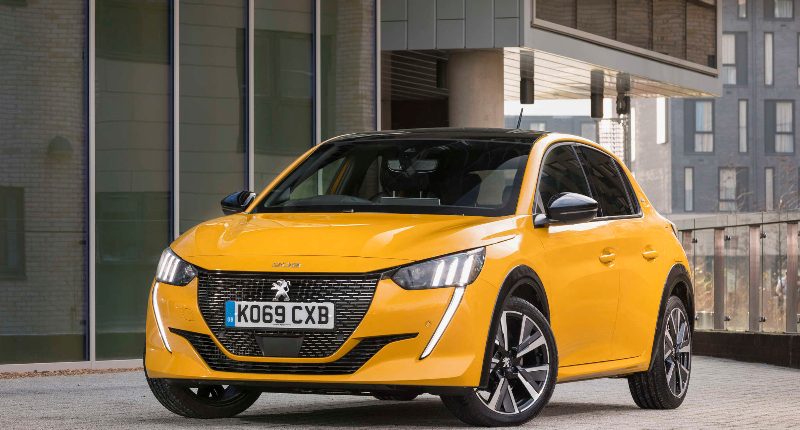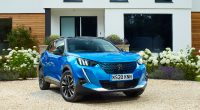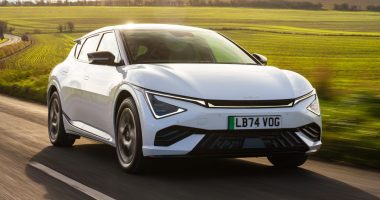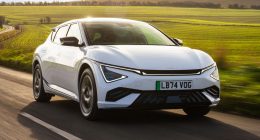Peugeot has an impressive track record in the European Car of the Year having clinched the coveted title 10 times in all, with the latest recipient being the new 208 supermini. We drive the GT-Line model with the most potent petrol and 8-speed automatic to see if it is a winning formula.
Table of Contents
THE FIESTA IS NO.1 FOR A REASON
Indeed it is. The Blue Oval’s breadwinner is proving rather difficult to knock off its perch in the UK new sales charts – but that has not stopped those at Peugeot from trying with the new 208. Sitting on an entirely fresh platform, the 208 majors heavily on three things: striking design, big car tech and cleaner fuels (hence the arrival of a zero-emissions electric model). ‘Active’, mid-spec ‘Allure’ and ‘GT-Line’, as seen here, make up the range for petrol and diesel examples of the French hatch, with prices starting at £16,845 and rising to £21,145 before options – the going rates nowadays.
TALK ME AROUND THE 208
Styling is a subjective topic but there can be no arguing Peugeot has – quite literally – pulled off a master stroke with the shape and proportions of the front-wheel-drive supermini. Key talking points are the aggressively set headlights, tusk-shaped DRLs and a chequered flag arrangement for the grille. The claw theme on show at the front is repeated in tail-lights that are bridged by an expansive belt of piano black plastic. 17-inch wheels fill out the arches on GT-Line 208s perfectly and the contour of the C-pillar and badges’ positioning are nods to this car’s inspiration: the 205.
IS THE INTERIOR AS SOPHISTICATED?
One thing is for sure when you get inside, be it for the first time or the one hundred and first: you will never grow tired of the 3D i-Cockpit, the regiment of buttons that sit below a row of touch sensitive icons for the 10-inch multimedia system, or the swathes of squidgy materials for the primary touch points. The tasteful application of smooth black plastics and the carbon fibre-print dashboard insert also help to ensure that this is a more interesting place to cover miles compared to rivals. Peugeot hasn’t forgotten the basics, though: all round storage for oddments is sufficient.
HOW EASY IS THE 208 TO LIVE WITH?
Practicality is something of a mixed bag for the 208. As far as driving in pent-up traffic goes, and nipping through tight spaces or down narrow side streets, there are no complaints. Front and rear sensors and a 180° reversing camera guarantee sweat-free parking. Those compact dimensions come at a cost in the form of interior space, especially for those clambering into the back. We say clamber because access to the rear is far from easy, even for five-foot somethings like this author. Head and legroom are neat and the distance between either door is only enough for two adults.
I WOULD OWN AN EV – JUST NOT NOW
While EV sales are steadily on the rise Peugeot, like all mainstream manufacturers, realises there is still an appetite for petrol and diesel. The former is a 1.2-litre three-cylinder that uses a turbo to divvy up 75bhp, 99bhp or 128bhp. Those who prefer heavy fuel are catered for by way of a 1.5-litre, four-cylinder turbo unit with 99bhp. An eight-speed auto is the sole transmission for the larger petrol that whisks you from 0-62mph in a snip below 9 seconds. The top speed is 129mph. We found the engine and automatic to be suitably matched during our time with the car. Press hard on the accelerator and the extra surge of torque demanded to execute an overtake arrives there and then because of negligible turbo lag low-down. Cog swaps are well calibrated and virtually silent, and flicking to ‘Sport’ mode gives these a sharper edge. Enthusiastic drivers are sure to approve.
HOW DOES IT DRIVE?
We had high expectations of the 208 when we travelled to Portugal for the car’s international launch last autumn. Granted, we tested the e-208, so perhaps it was not a true reflection of how the car behaves on the open road because of the added weight introduced by the battery pack. Reverting to type shows the hatch in a much more favourable light. The dampers remain weighted on the firm side which has pros (the chassis settles quickly after sudden directional changes) and cons (rough roads and low-speed ride around town exposes some bump-thump characteristics). Those in the market for a new supermini and who value driving fun should know the Fiesta is still the benchmark in this area. The 208 is enjoyable – just not a hoot all of the time like its arch rival.
PROS & CONS
+ Styling will appeal to all ages
+ Cabin tech mostly easy to use
+ Petrol is strong, auto is quiet
– Taut suspension hurts ride
– Rear space is tight
– High list price
3D i-COCKPIT: This class-first system works using two screens to ‘layer’ information to create the impression of three-dimensional graphics and it works – beautifully. The most salient information is front and centre with other graphics positioned behind it. And because your eyes adjust quickly between watching the road and instrument binnacle, reaction times are improved, say Peugeot.
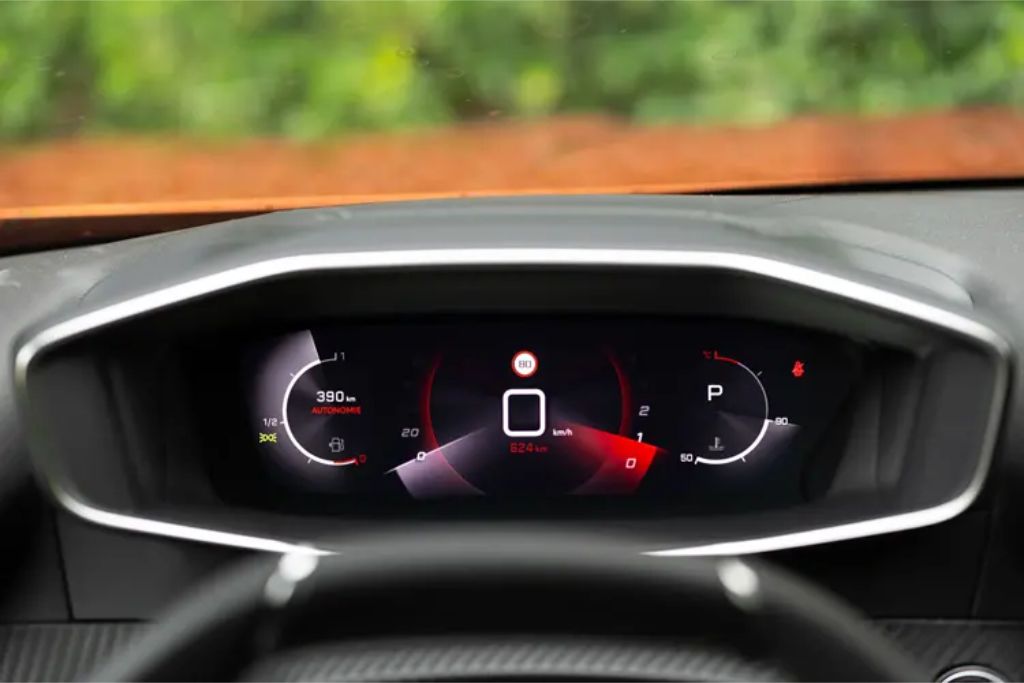
STYLING: Few will find it hard not to like this French hatchback, particularly in ‘GT-Line’ trim as it attracts 17-inch two-tone alloys and full LED headlights. Gloss black is used extensively, with the roof, wheel-arch ‘extensions’, mirror caps and lower portion of the back bumper finished this way. Customers have a total of eight body colours to choose from including our car’s ‘Faro Yellow’ hue.
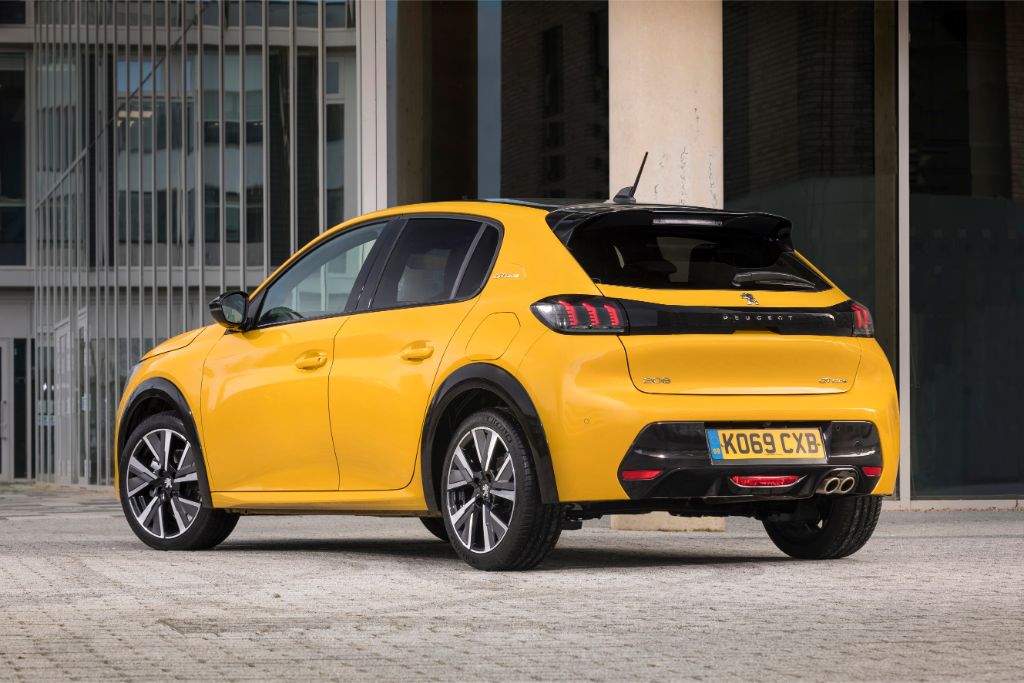
INTERIOR: The 208’s cabin impresses at every level and raises the bar in the supermini stakes. The infotainment system incorporates the climate control and sat-nav options, with a discreet row of index finger-shaped buttons serving as shortcuts. Changeable mood lighting and vibrant lime green stitching on the seats, the door cards and along the top of the dash raise the ambience.
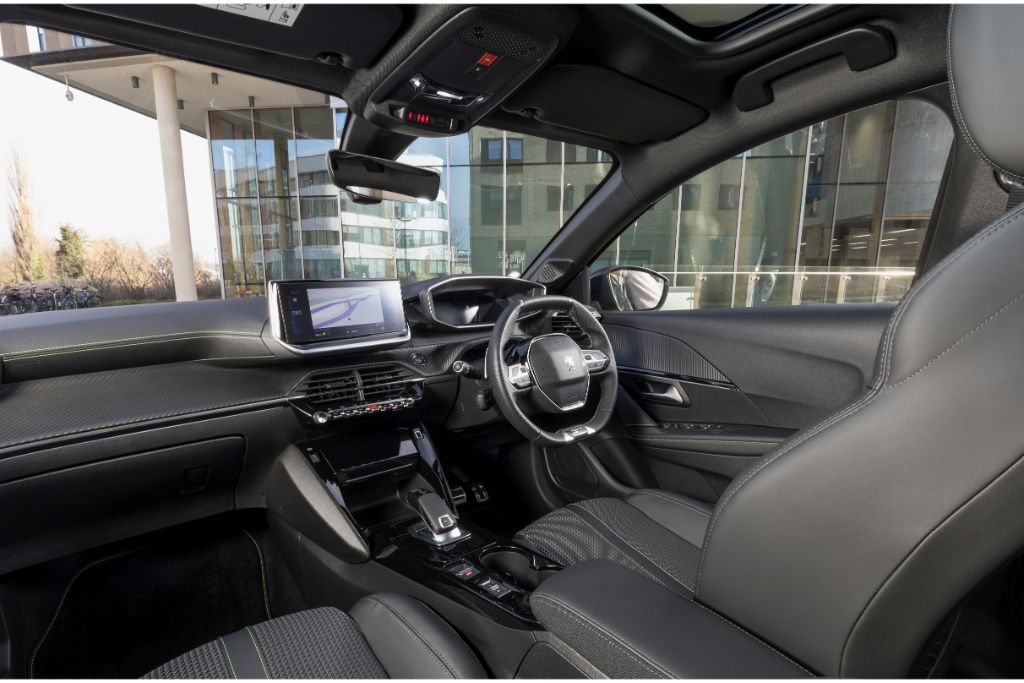
PRACTICALITY: Space inside, especially for those travelling in the back, is adequate at best which perhaps explains why Peugeot only builds the 208 as a 5-door. At 311-litres, boot space is OK; this can be increased by dropping the 60/40 rear seats. Access to the boot is generally good because the opening is wide. That said, the raised lip and deep step make lifting items in or out tricky.
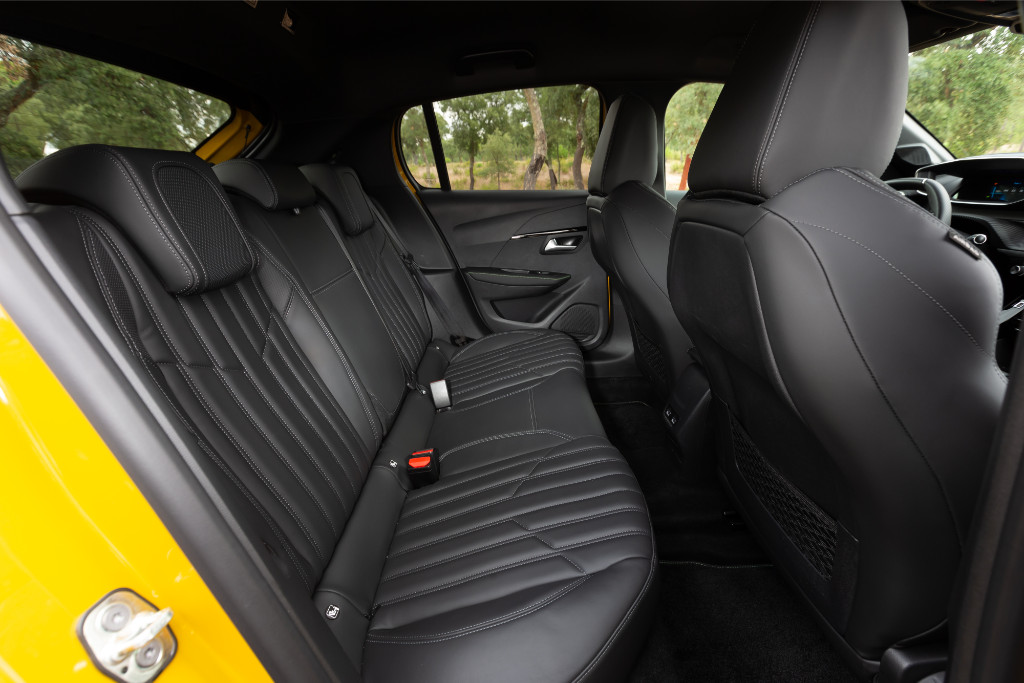
SPECIFICATION
Price: £24,800 (as tested)
Engine: 1.2-litre, 3cyl turbo petrol
Power/torque: 129bhp/170lb ft
Transmission: 8-speed automatic, front-wheel-drive
0-62mph: 8.7 seconds
Top speed: 129mph
Economy/CO2: 51.9mpg/103g/Km
